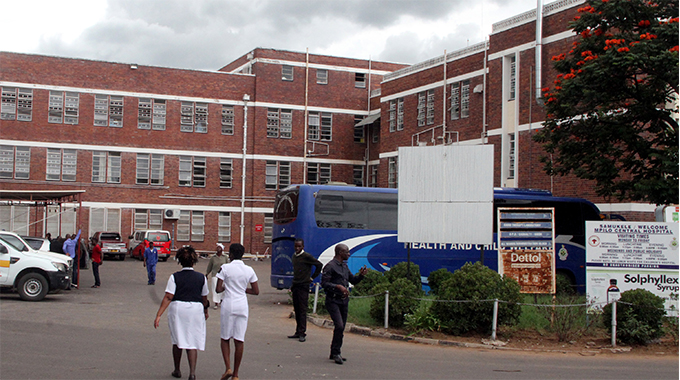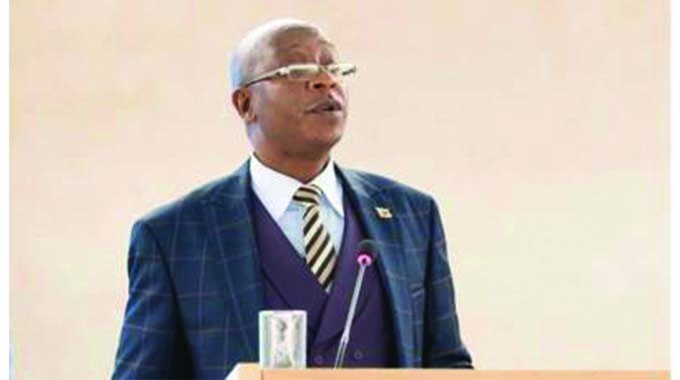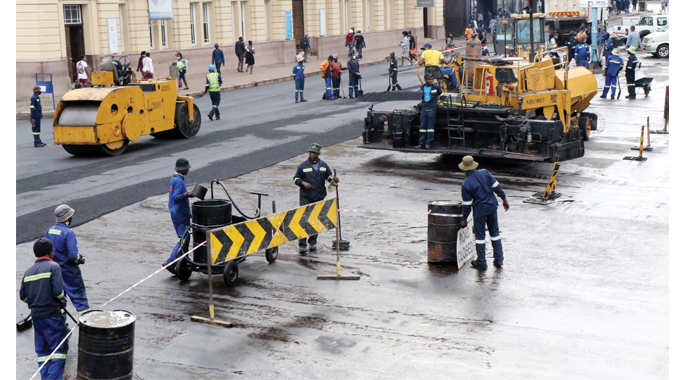‘51 years of existence have been filled with pain’

Thandeka Moyo-Ndlovu, Senior Health Reporter
SAGOGWANA Unit at Mpilo Central Hospital in Bulawayo houses struggling cancer patients without accommodation in Bulawayo as they await treatment.
One can easily sense the agony being endured by a person completely covered by a red blanket within the hospital unit.
The groaning explains the excruciating pain that Ms Monica Munkuli (51) from Chinginga Village, Binga in Matabeleland North Province, who lives with albinism has endured since the beginning of the year.

Mpilo Central Hospital
What began as a small blister on her left leg has since grown into a septic cancerous wound which covers the greater part of her leg.
She can barely sit upright and the dripping wound makes it difficult for her to wear anything at all.
Her plight came into focus yesterday as Zimbabwe joined the rest of the world in marking the International Albinism Awareness Day 2022 under the theme: “United under the same voice.”
Ms Munkuli’s has spent the past three weeks at Sagogwana Unit while awaiting her second course of chemotherapy.
This institution has become home to many others like Ms Munkuli as they are an easy target for skin cancer.

Ms Monica Munkuli
Albinism is a condition whereby one is born without melanin as a result of a recessive gene existing in both parents.
The absence of melanin in one’s body becomes a complex problem for the biology of a person with albinism and when they are exposed to the sun without protective clothing or sunscreen lotions.
The sun can damage their skin cells causing them to age faster, crack, and cause abnormal skin cell regeneration.
The lack of melanin in people living with albinism increases their risk of developing skin cancer which must be prevented by using skin care products. Many die from skin cancer before the age of 40 in Zimbabwe.
They also suffer visual impairments and extreme vulnerability to skin infections.
Sunscreens costs a minimum of US$20 monthly per person which is beyond the reach of many.
Ms Munkuli told a Chronicle crew that her whole 51 years of existence have been filled with pain.

She said when she was diagnosed with cancer last month, she was saved by the Noble Hands organisation which is helping her pay for chemotherapy.
“I cannot even afford to buy simple meds for pain while I await chemotherapy as I am due on Friday. I have no access to food or any kind of help at the moment and we rely on the hospital for meals as we are poor. I had to ask my daughter who is married to accompany me and help me navigate so I cannot move or do anything,” she said.
“Living with albinism is like a curse. My whole life has been full of misery, from rejection from family to failing to fend for myself. My only sister who also had albinism died and left me with a 12-year-old niece who is all by herself back in the village.”
Ms Munkuli said she wished for a painless life with access to basics.
“I managed to get help from Noble Hands who are helping me with hospital bills but I am not even sure if I will make it. The pain does not lessen even after chemotherapy and if I go back to the village like this, I may not make it.”
Ms Marvelous Tshuma, the deputy director of Noble Hands, said many people with albinism are struggling to get treatment since cancer departments are only found in central hospitals in Bulawayo and Harare.
She said lack of cancer surveillance in rural areas makes it difficult for people living with albinism to survive as they present late when cancer is advanced.
“The lack of an active Cancer Surveillance System which can be used to detect skin cancer early through regular cancer screening in communities is fueling this problem as well. In terms of diagnostic equipment which is a huge challenge right now as patients are taking samples to private labs like Lancet for expedited sample testing which can release results within seven days as compared to the labs in the public hospitals where results come after 6 months. We have had cases where the results came after the patient had already died,” said Ms Tshuma.

Marvelous Tshuma
Skin cancer amongst people living with albinism affects mostly persons aged from 15 going up and many die before they reach the age of 40.
“The main reason is that the bulk of the albino community live in rural areas and depend on farming. They spend all the day in the fields in the sun without protection and this is increasing the incidences of skin cancer, the lotions are quite expensive; many can’t afford. If donor organisations don’t distribute the lotions one can go for months without the lotions imagine a bottle goes for more than $15 which can last only a month so our predicament is grim and worrying,” said Ms Tshuma.
She said some like Ms Munkuli are rejected by their families as a result of the degree of the cancer, in most cases they are found stranded with nowhere to go in Harare or Bulawayo.

Ms Monica Munkuli
“Therefore, many just give up treatment and go back to their rural home and they will go untreated which will eventually result in a premature, painful death, as a result of family segregation and discrimination,” said Ms Tshuma.
She said local universities need to do research on indigenous medicines to treat cancer in general so that people living with albinism have home grown solutions. –@thamamoe








Comments